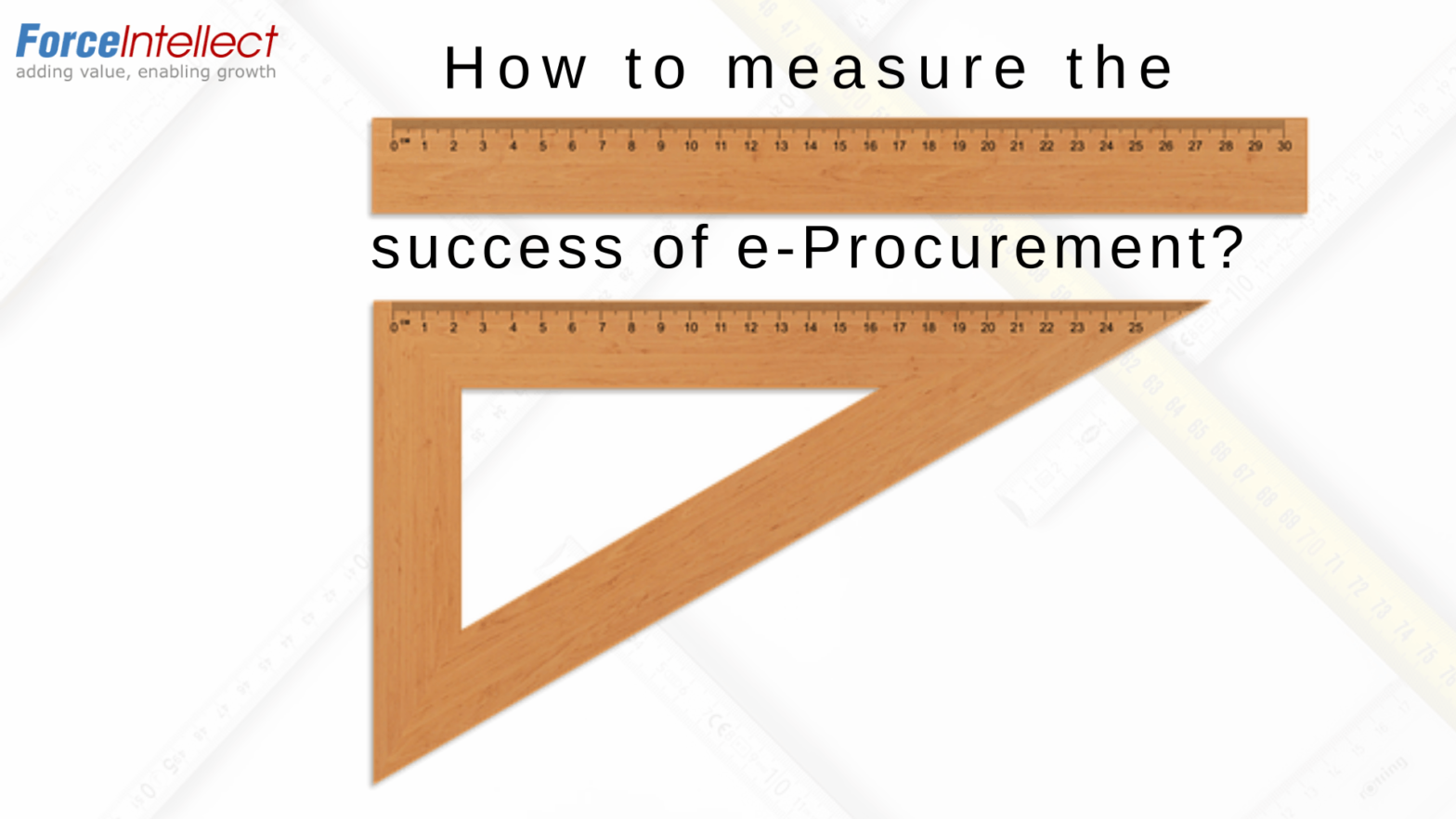How to measure the success of e-Procurement?
It’s an established fact, that e-procurement solutions help organizations in implementing effective procurement processes and strategies. Saving on procurement price and procurement time are two easy to recognize benefits. e-procurement solutions provide many more tangible and intangible benefits beyond these two easy recognizable points. It is often difficult for organizations to define procurement KPI and metrics which help understand how to measure the success of e-Procurement solution implemented.
Given below are some important points which may help you understand “How to measure e-Procurement success”.
No. of Transactions
![]() This KPI lets you measure the number of procurement executed through e-Procurement solution. It is a very basic KPI but provides a clear understanding of the adoption of e-Procurement solutions by users and vendors. You can further deep dive to understand the adaptability of each module e.g. No of RFQ, Quotation received, auctions, etc. and can take action to improve the participation in required areas to improve e-Procurement success.
This KPI lets you measure the number of procurement executed through e-Procurement solution. It is a very basic KPI but provides a clear understanding of the adoption of e-Procurement solutions by users and vendors. You can further deep dive to understand the adaptability of each module e.g. No of RFQ, Quotation received, auctions, etc. and can take action to improve the participation in required areas to improve e-Procurement success.
Savings recorded
 e-Procurement solution increases supplier reach and negotiation. This helps to achieve cost savings. This is the key advantage of adopting the e-Procurement system. It is also sometimes referred to as hard savings and a performance indicator of money saved due to the adoption of an e-procurement solution. To record savings, prices of items are compared with the prices before adopting e-Procurement solution. After e-procurement adoption, hard savings are calculated on amount negotiated i.e. the difference between first L1 price and final L1 price.
e-Procurement solution increases supplier reach and negotiation. This helps to achieve cost savings. This is the key advantage of adopting the e-Procurement system. It is also sometimes referred to as hard savings and a performance indicator of money saved due to the adoption of an e-procurement solution. To record savings, prices of items are compared with the prices before adopting e-Procurement solution. After e-procurement adoption, hard savings are calculated on amount negotiated i.e. the difference between first L1 price and final L1 price.
Procurement costs
 It is also referred to as soft savings and difficult to measure accurately. There are many direct and indirect factors that add to procurement cost. Few examples of procurement cost-related KPIs are saving in procurement cycle time, Avg. Amount of procurement per executive, reduced errors, etc. You can choose procurement cost KPIs which are relevant for your organization and can monitor them to improve those areas.
It is also referred to as soft savings and difficult to measure accurately. There are many direct and indirect factors that add to procurement cost. Few examples of procurement cost-related KPIs are saving in procurement cycle time, Avg. Amount of procurement per executive, reduced errors, etc. You can choose procurement cost KPIs which are relevant for your organization and can monitor them to improve those areas.
Suppliers Adopted
![]() Having too few or too many suppliers is a hindrance in achieving procurement success. Depending on too few suppliers is a risk, as a failure from the supplier may impact the organization. Similarly, with too many suppliers, we may not have an interesting competition. Organizations should strive to maintain a healthy number of suppliers in each item category.
Having too few or too many suppliers is a hindrance in achieving procurement success. Depending on too few suppliers is a risk, as a failure from the supplier may impact the organization. Similarly, with too many suppliers, we may not have an interesting competition. Organizations should strive to maintain a healthy number of suppliers in each item category.
Compliance
 Compliance means conforming to certain policy or rules and procurement compliance defines policies which organization wants to achieve. There is no standard procurement compliance and every organization may choose their own. A few examples of compliance may be supplier response rate, on-time delivery, quality performance, billing accuracy, on-time payment. You too can define your own polity and can measure them.
Compliance means conforming to certain policy or rules and procurement compliance defines policies which organization wants to achieve. There is no standard procurement compliance and every organization may choose their own. A few examples of compliance may be supplier response rate, on-time delivery, quality performance, billing accuracy, on-time payment. You too can define your own polity and can measure them.
Intangible Savings
![]() e-Procurement has a large impact on the working of organizations. Though we may measure hard and soft saving, it is difficult to measure all the benefits. These intangible benefits are important and contribute to the success of the e-procurement solution. Automation of the procurement process, cultural change, analytics tools to users, e-intelligence, high visibility of supplier performance are few intangible savings. You may review and note about these intangible benefits in your organization to measure the success of e-Procurement solution.
e-Procurement has a large impact on the working of organizations. Though we may measure hard and soft saving, it is difficult to measure all the benefits. These intangible benefits are important and contribute to the success of the e-procurement solution. Automation of the procurement process, cultural change, analytics tools to users, e-intelligence, high visibility of supplier performance are few intangible savings. You may review and note about these intangible benefits in your organization to measure the success of e-Procurement solution.
Improved MIS
![]() A successful e-procurement solution provides detail, accurate and high-quality information to management. This MIS can be used to monitor the impact of procurement strategy and can provide data points for future improvement in strategy.
A successful e-procurement solution provides detail, accurate and high-quality information to management. This MIS can be used to monitor the impact of procurement strategy and can provide data points for future improvement in strategy.
Summary
What gets measured gets done. Organizations should discuss and measure the success of e-procurement solution implemented. Based on these performance indicators, KPIs and measuring parameters should be introduced early in the procurement process. These indicators should be monitored and shared with all to review and measure the success of e-Procurement solution implemented. Only then, the organization will be able to see the true value of the benefits of e-procurement.

